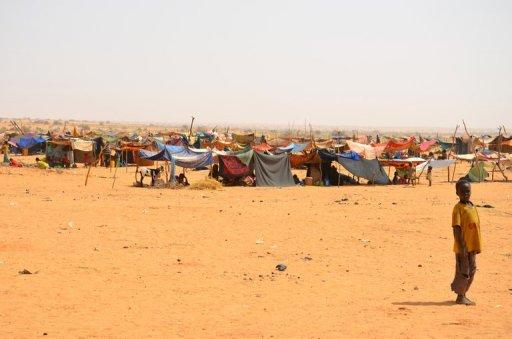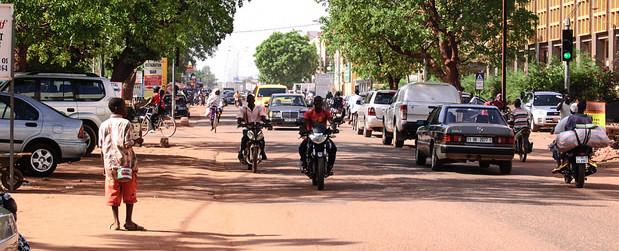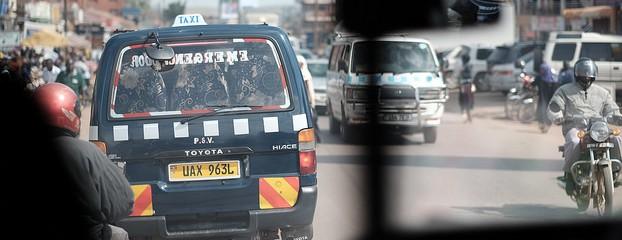Malian crisis: Tuareg rebellion could spark regional violence in Mali, Niger and Southern Algeria – By Celeste Hicks

The recent outbreak of violence in northern Mali will have given governments across the Sahel with their own Tuareg populations pause for thought. While regional attention has been diverted in recent years by the threat posed by Islamic militant groups such as Al-Qaeda in the Islamic Maghreb (AQIM) and Boko Haram, the Tuareg problem has never been resolved. With the arrival of thousands of refugees in neighbouring countries such as Burkina Faso and Mauritania, many are asking if conflict could spread.
In Mali’s case, many seasoned observers knew it was just a matter of time before the long-standing Tuareg grievances – claims for regional development and independence – resurfaced. After a peace deal was worked out following the last rebellion of the ATNMC led by Ibrahim Ag Bahanga, many of those responsible seemed to simply vanish into the Sahara desert. Promises to integrate former fighters into the national army do not seem to have been fully implemented. Some former rebels apparently turned up to fight on the side of Colonel Gaddaffi in Libya’s recent conflict, although Gaddaffi’s support for the Tuareg cause had been as idiosyncratic as his support for any other cause in Africa. The ferocity of the attacks in January 2012 by the newly-launched MNLA (National Movement for the Liberation of Azawad) – numbering several close associates of Bahanga (Bahanga was killed in a road accident in August 2011) – seems in part attributed to them bringing back weapons they obtained in Libya.
The situation is further complicated by the fear of involvement of AQIM, known to operate in the area around the Wagadou Forest in western Mali. Although the MNLA strenuously denied the accusations by the Malian government that AQIM had been involved in their operations, including an attack on Aguelhoc, their new rebellion was hot on the heels of the shocking abduction of four European tourists in Timbuktu in November, one of whom was killed when he resisted, and two Frenchmen in nearby Hombori. Exactly who carried out these kidnappings has never been clearly ascertained but the blurring of the lines only gives the MNLA rebellion a broader and more chilling context.
On a recent visit to neighbouring Niger, I heard from locals in Agadez, which has its own large Tuareg population, that they now live in fear of a repeat of Niger’s own MNJ (Nigerien Movement for Justice) rebellion, which broke out around the same time as Bahanga’s revolt in 2007. Back then there was much talk of links between the two groups, and national borders have seldom meant much to Tuaregs who have family connections across southern Algeria, Libya, northern Niger, Mali and Burkina Faso. These fears certainly reached a head in September when one of the erstwhile leaders of the MNJ, Rhissa Ag Boula, was reportedly seen among the convoy which brought Saadi, the son of Colonel Gadaffi, to Agadez in northern Niger. And although the numbers are likely to be small, there is a strong suspicion that some of those currently in the MNLA in Mali are in fact Nigerien Tuareg.
But Niger’s authorities seem confident. Foreign Minister Bazoum Mohamed recently said that the chances of a recurrence are slim because according to him, Niger had handled the aftermath of the MNJ rebellion better than neighbouring Mali. What exactly could be meant by “˜better’ is a moot point since many of the locals accused the armed forces under former President Mamadou Tandja of brutal repression at the time. But newly-elected president Mahamadou Issoufou seems to have at least mended some of those broken bridges by bringing several former rebels into important roles such as Prime Minister (Brigi Raffini), mayor of Agadez (Rhissa Feltou) and President of the Regional Council of Agadez (Mohamed Anako), something Mali has not done to the same extent. Rhissa Ag Boula himself has been appointed an advisor to the presidency.
It’s difficult to make too many predictions about whether a wider Tuareg cause, or indeed an eruption in Islamic militant violence, could be ignited by the actions of the MNLA . It is however clear that the challenges facing Sahelian governments of bringing security across such vast and impossible to police borders have been ignored for too long.
While Mali, in a crucial election year, finally seems to be waking up to the dangers of not acting sooner to dislodge the AQIM presence on its soil (thought only to number several hundred), the response of their army to the MNLA rebellion has only exposed its limitations. Efforts by France and the US to build up Mali’s armed forces (under the Trans-Saharan Counter Terrorism Initiative) need time to produce results; Ecowas and the AU have all issued dramatic statements condemning the violence, but so far no concrete military support has been offered. Likewise, the score-card of the joint military command known as CEMOC set up between Algeria, Mauritania, Mali and Niger, is blank.
With a food crisis now emerging across the whole Sahel, which is estimated to be affecting some 13 million people, it seems there may be a rare window of opportunity to ensure that some of the increased international attention on the region can be devoted to finding a lasting solution to this long-running security crisis.
Celeste Hicks is a freelance journalist with a focus on African issues. She has a particular interest in the Sahel.






Celeste,
I am working with a nonprofit called One Day’s Wages to look for people we can partner with in Sahel region relief. We are looking for nonprofits who are on the ground, working with the people in the area. Do you have any recommendations?
Thank you,
Kalene Barry